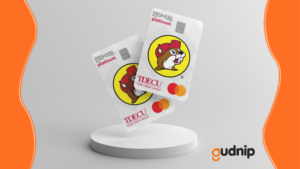When starting a small business, one of the first steps is to identify your target audience.
Knowing who your customers are helps you tailor your products or services to meet their needs.
You can do this by conducting surveys or researching online to understand their preferences and pain points.
After understanding your audience, focus on building a strong brand identity.
This includes creating a memorable logo, selecting colors that reflect your values, and developing a consistent voice in your communication.
A strong brand helps you stand out in a crowded market and builds trust with your customers.
Finally, use a mix of marketing strategies to reach your audience effectively. Explore social media, email marketing, and local events to promote your business.
Engaging with your community and being present where your customers hang out can significantly increase your visibility and help grow your small business.
Starting a small business can be a thrilling journey filled with opportunities and challenges.
How to start a small business is a question many aspiring entrepreneurs ask.
Whether you have a fantastic idea or are still searching for the right concept, it’s essential to understand the steps involved.
Understanding the Small Business Landscape
Understanding the small business landscape is crucial for anyone learning how to start a small business, as it lays the foundation for informed decisions.
Many factors shape this landscape, including market trends, competition, and consumer needs.
By recognizing these elements, you can better position your business for success.
Small businesses often face unique challenges such as limited resources and stiff competition.
However, they also have advantages, like flexibility and the ability to connect closely with local customers.
Embracing your unique strengths can make all the difference in a crowded market.
Staying informed about the latest developments in your industry helps you anticipate changes and adjust your strategies.
Whether it’s a shift in consumer behavior or new technology, being aware of these trends allows you to seize opportunities and grow your small business.
Identifying Your Business Idea
Identifying your business idea is the first step in learning how to start a small business, so begin by reflecting on your passions and skills.
What are you good at? What do you enjoy doing? Combining your interests with your abilities can lead to a business idea that excites you.
Next, research the market to find gaps that your idea can fill. Look for problems that people face or needs that are not being met.
This helps you discover if your idea is unique and if there is a target audience ready for it.
Understanding the demand is key to ensuring your business idea has the potential to succeed.
Finally, don’t hesitate to brainstorm and share your ideas with others. Getting feedback can help refine your concept and lead to new ideas.
Talk to friends, family, or potential customers to see what resonates with them.
Collaborating can spark creativity and help you shape a strong business idea that stands out.
Conducting Market Research
Conducting market research is a vital step for any new business.
This process, essential for understanding how to start a small business, involves gathering information about your target market, competitors, and industry trends.
By understanding who your customers are and what they want, you can tailor your products or services to meet their needs.
Start your market research by using surveys and interviews to gather direct feedback from potential customers.
Ask questions about their preferences, problems, and buying habits.
You can also explore online resources like industry reports and market analysis to gain insights into your field.
This data helps you make informed decisions that can improve your chances of success.
Once you have collected this information, analyze it to identify patterns and opportunities. Look for gaps in the market that your business can fill.
For example, if customers express a need for better customer service in your niche, you can make that a key part of your strategy.
The clearer your understanding of the market, the better equipped you’ll be to launch your small business.
Creating a Business Plan

Creating a business plan is an important step in starting your small business.
A good business plan, essential for understanding how to start a small business, outlines your goals, strategies, and how you plan to achieve them.
It serves as a roadmap that guides you on your journey while helping you stay focused and organized.
Begin by describing your business idea and what makes it unique. Include details about your target market and how you plan to reach them.
You should also outline your financial projections, such as startup costs, revenue expectations, and pricing strategies.
This information will help you understand the resources you need to succeed.
Finally, review and revise your plan regularly. As your business grows, you may need to adjust your strategies to meet changing market conditions.
A flexible business plan keeps you on track while allowing you to adapt to new challenges and opportunities that arise.
Determining Your Business Structure
Determining your business structure is a key decision in how to start a small business, as it affects how your small business operates.
Common structures include sole proprietorships, partnerships, and corporations.
Each type has its own advantages and disadvantages, especially regarding taxes and liability.
A sole proprietorship is easy to set up and offers complete control but puts your personal assets at risk.
Partnerships allow you to share responsibilities and resources with others, but disagreements can arise.
Corporations provide liability protection but involve more complex regulations and costs.
Consider your business goals, the number of people involved, and how much risk you are willing to take before deciding on a structure.
It may be helpful to consult a legal expert or business advisor to ensure you choose the right one for your needs, enabling a smooth path for your business growth.
Financing Your Small Business
Financing your small business is an essential step to turning your idea into reality.
There are various ways to secure funds, such as personal savings, loans, angel investors, or crowdfunding.
Each option has its own benefits and challenges, so it’s important to consider what works best for your situation.
When seeking a loan, prepare a solid business plan to show lenders how you plan to use the funds.
This plan should include your expected expenses and revenues.
Showing that you have a clear path to profitability can help improve your chances of getting the financial support you need.
Additionally, explore government programs and grants designed to assist new businesses.
These resources can provide financial help without the burden of repayment.
Researching and networking within your community can reveal hidden opportunities for financing that fit your needs.
Marketing Strategies for Startups
Marketing strategies for startups are vital for building awareness and attracting customers.
Start by identifying your target audience and understanding their needs and preferences.
This helps you create relevant messages that will resonate with them.
Using social media platforms is an effective way to reach potential customers, as these channels allow you to engage directly and build relationships.
Content marketing can also be a powerful tool for startups.
By creating valuable content, such as blog posts, videos, or podcasts, you provide useful information that establishes your authority in your industry.
This not only attracts visitors to your website but also encourages them to trust your brand.
Finally, consider partnerships and collaborations to expand your reach.
By teaming up with other businesses or influencers, you can tap into new audiences and enhance your visibility.
These marketing strategies can set a strong foundation for your startup and drive long-term success.
Navigating Legal Requirements

Navigating legal requirements is an important step for any small business owner.
Before starting your business, you need to understand the laws that apply to your industry.
This includes registering your business name, obtaining licenses, and knowing zoning laws.
Ensuring you comply with these regulations can save you from future legal troubles.
It’s also essential to understand your tax obligations.
Depending on your business structure, you may need to pay different types of taxes like income tax, sales tax, and payroll tax.
Keeping accurate financial records and consulting a tax professional can help you manage these responsibilities effectively.
Lastly, consider setting up contracts and agreements that protect your interests.
Clear agreements with partners, suppliers, and customers can help avoid misunderstandings.
Consulting a legal professional can guide you in creating documents that meet legal standards and support your business goals.
Starting a small business requires a clear understanding of your goals and the steps to achieve them.
It is important to create a solid foundation by defining your mission statement and vision.
This clarity will guide your decisions and keep you focused as you grow.
Next, develop a detailed business plan that outlines your objectives, target market, and strategies.
This plan should include your marketing approach, financial projections, and operational details.
A well-thought-out business plan not only helps you stay organized but can also attract investors and secure financing.
Finally, stay adaptable and open to feedback as your business evolves.
The marketplace can change quickly, and being flexible allows you to respond to new opportunities and challenges.
Regularly reviewing your goals and adjusting your strategies ensures that you remain on the path to success.





